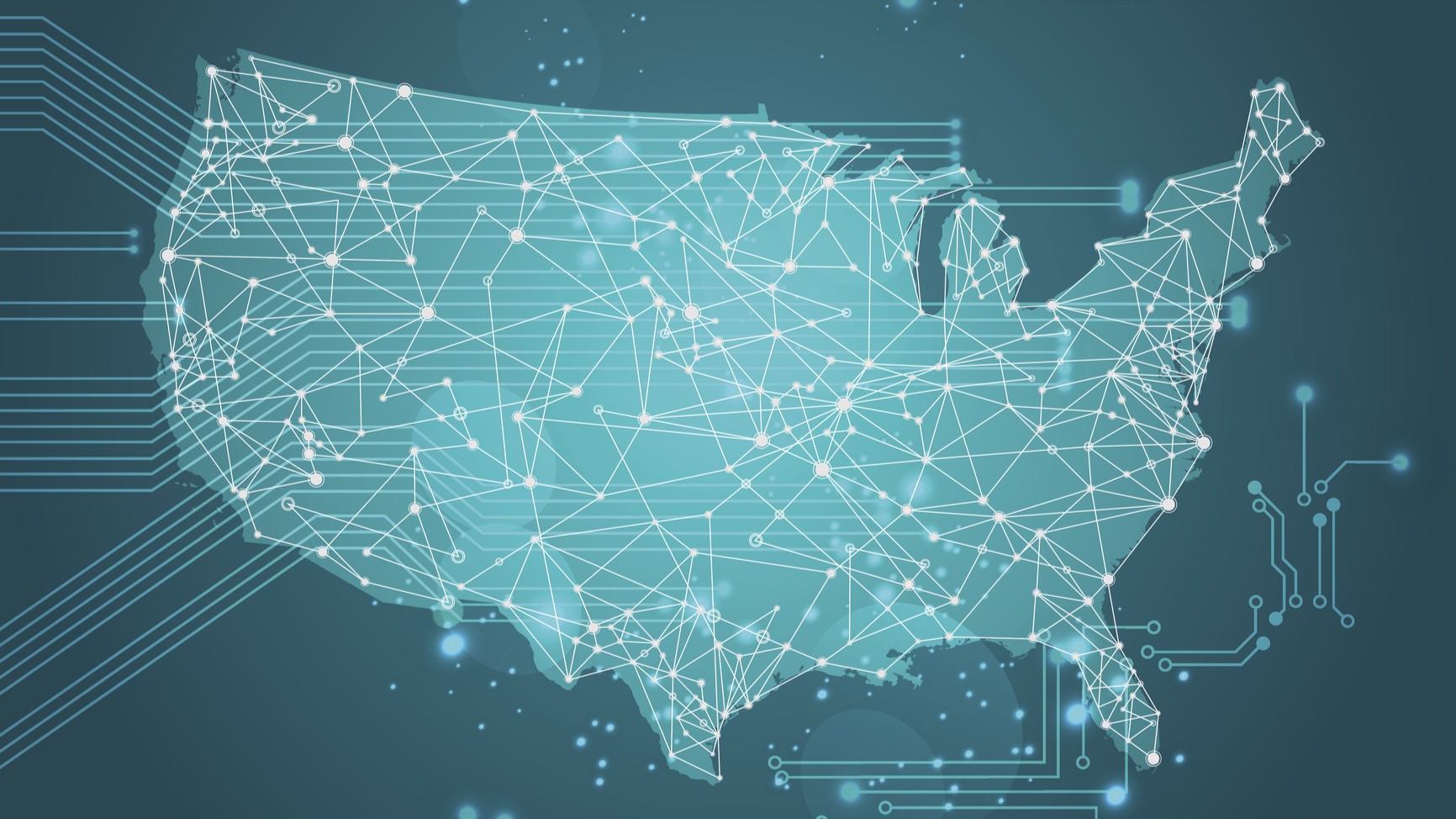Will State Laws Hurt AI’s Future?
Republicans in Congress are kicking the tires on a moratorium on state AI laws. But it’s likely a growing patchwork of state AI regulations will be here for a while.


Profit and prosper with the best of Kiplinger's advice on investing, taxes, retirement, personal finance and much more. Delivered daily. Enter your email in the box and click Sign Me Up.
You are now subscribed
Your newsletter sign-up was successful
Want to add more newsletters?

Delivered daily
Kiplinger Today
Profit and prosper with the best of Kiplinger's advice on investing, taxes, retirement, personal finance and much more delivered daily. Smart money moves start here.

Sent five days a week
Kiplinger A Step Ahead
Get practical help to make better financial decisions in your everyday life, from spending to savings on top deals.

Delivered daily
Kiplinger Closing Bell
Get today's biggest financial and investing headlines delivered to your inbox every day the U.S. stock market is open.

Sent twice a week
Kiplinger Adviser Intel
Financial pros across the country share best practices and fresh tactics to preserve and grow your wealth.

Delivered weekly
Kiplinger Tax Tips
Trim your federal and state tax bills with practical tax-planning and tax-cutting strategies.

Sent twice a week
Kiplinger Retirement Tips
Your twice-a-week guide to planning and enjoying a financially secure and richly rewarding retirement

Sent bimonthly.
Kiplinger Adviser Angle
Insights for advisers, wealth managers and other financial professionals.

Sent twice a week
Kiplinger Investing Weekly
Your twice-a-week roundup of promising stocks, funds, companies and industries you should consider, ones you should avoid, and why.

Sent weekly for six weeks
Kiplinger Invest for Retirement
Your step-by-step six-part series on how to invest for retirement, from devising a successful strategy to exactly which investments to choose.
To help you understand the trends surrounding AI and other new technologies and what we expect to happen in the future, our highly experienced Kiplinger Letter team will keep you abreast of the latest developments and forecasts. (Get a free issue of The Kiplinger Letter or subscribe.) You'll get all the latest news first by subscribing, but we will publish many (but not all) of the forecasts a few days afterward online. Here’s the latest…
Insufficient electricity, Nvidia chip shortages and tech advances hitting roadblocks are some of the potential factors that could slow down AI development. Now there’s a bigger worry: The states and how they regulate AI.
There have been hundreds of AI bills introduced in the states this year alone. These include transparency rules, consumer protections, inspections of top AI models for compliance, and efforts to promote AI adoption. Colorado was a first-mover, passing a comprehensive AI law last year that covers high-risk AI systems, discrimination and transparency.
From just $107.88 $24.99 for Kiplinger Personal Finance
Become a smarter, better informed investor. Subscribe from just $107.88 $24.99, plus get up to 4 Special Issues

Sign up for Kiplinger’s Free Newsletters
Profit and prosper with the best of expert advice on investing, taxes, retirement, personal finance and more - straight to your e-mail.
Profit and prosper with the best of expert advice - straight to your e-mail.
That’s prompted an unusual idea on Capitol Hill: Block states from regulating AI for the next decade. A recent draft of the emerging Republican tax and spending bill includes the decade-long restriction, with an expansive definition of AI and few exceptions. One of the main carve-outs is allowing states to pass laws that promote AI use and adoption.
The proposal sets the stage for a fierce debate this year and beyond, even though that specific proposal is not likely to make it into law anytime soon. A moratorium would prevent states from enacting or enforcing AI-specific bills related to chatbots, social media, deepfakes, medical software and much more. Advocates for the pause say AI harms can be addressed with other state laws related to unfair or deceptive practices, consumer privacy, discrimination and more.
Many Republicans, technologists and analysts argue the U.S is at risk of choking innovation in the nascent field of generative AI. “The United States is hurtling toward a fragmented web of conflicting rules that create uncertainty, raise costs, and stifle innovation,” Hodan Omaar, senior policy manager at the Information Technology and Innovation Foundation, a Washington, D.C.-based think tank, said in a statement. Even Colorado Governor Jared Polis, a Democrat, now favors a federal moratorium, saying the state’s law, which he signed, went too far.
Preempting state laws is nothing new for Congress and is a familiar proposal in tech policy. But doing so without a federal framework in place is a novel idea in recent times and speaks to how quickly AI is being adopted.
A moratorium provides time to write federal rules, but it’s not clear when that would happen. “In the absence of federal protections, the proposal to block state and local action on AI for the next 10 years places the development, deployment, and use of AI into a lawless and unaccountable zone,” says Travis Hall, director for state engagement at the Center for Democracy & Technology (CDT), a Washington, D.C.-based nonprofit focused on digital rights.
Some analysts point to the 1990s when federal laws preempted state internet regulations to encourage growth of the emerging technology.
Bipartisan agreement is likely needed to halt the patchwork of state laws, but it’s hard to see the two parties compromising anytime soon. There’s no shortage of federal AI bills, including legislation calling for new studies, standards for disclosure and more R&D funding, with more bills on the way.
That means that tech companies, and their investors, are facing a tangled web of state regulations and compliance, which could drag on for years.
A similar state of limbo happened with state privacy laws. California’s sweeping privacy law prompted a big push for federal privacy rules that would preempt the rising patchwork of state laws. California’s law has been in effect for five years and there’s still no federal legislation in sight.
This forecast first appeared in The Kiplinger Letter, which has been running since 1923 and is a collection of concise weekly forecasts on business and economic trends, as well as what to expect from Washington, to help you understand what’s coming up to make the most of your investments and your money. Subscribe to The Kiplinger Letter.
Related Content
- How AI Will Impact Our Lives in 2025 and Beyond
- Strict AI Regulations Could Hinder Federal Agencies
- Rising Cyber Threat of AI
- Cybersecurity Stocks to Buy
Profit and prosper with the best of Kiplinger's advice on investing, taxes, retirement, personal finance and much more. Delivered daily. Enter your email in the box and click Sign Me Up.

John Miley is a Senior Associate Editor at The Kiplinger Letter. He mainly covers AI, technology, telecom and education, but will jump on other business topics as needed. In his role, he provides timely forecasts about emerging technologies, business trends and government regulations. He also edits stories for the weekly publication and has written and edited email newsletters.
He holds a BA from Bates College and a master’s degree in magazine journalism from Northwestern University, where he specialized in business reporting. An avid runner and a former decathlete, he has written about fitness and competed in triathlons.
-
 Dow Adds 1,206 Points to Top 50,000: Stock Market Today
Dow Adds 1,206 Points to Top 50,000: Stock Market TodayThe S&P 500 and Nasdaq also had strong finishes to a volatile week, with beaten-down tech stocks outperforming.
-
 Ask the Tax Editor: Federal Income Tax Deductions
Ask the Tax Editor: Federal Income Tax DeductionsAsk the Editor In this week's Ask the Editor Q&A, Joy Taylor answers questions on federal income tax deductions
-
 States With No-Fault Car Insurance Laws (and How No-Fault Car Insurance Works)
States With No-Fault Car Insurance Laws (and How No-Fault Car Insurance Works)A breakdown of the confusing rules around no-fault car insurance in every state where it exists.
-
 An Inflection Point for the Entertainment Industry
An Inflection Point for the Entertainment IndustryThe Kiplinger Letter The entertainment industry is shifting as movie and TV companies face fierce competition, fight for attention and cope with artificial intelligence.
-
 I Met With 100-Plus Advisers to Develop This Road Map for Adopting AI
I Met With 100-Plus Advisers to Develop This Road Map for Adopting AIFor financial advisers eager to embrace AI but unsure where to start, this road map will help you integrate the right tools and safeguards into your work.
-
 Humanoid Robots Are About to be Put to the Test
Humanoid Robots Are About to be Put to the TestThe Kiplinger Letter Robot makers are in a full-on sprint to take over factories, warehouses and homes, but lofty visions of rapid adoption are outpacing the technology’s reality.
-
 Trump Reshapes Foreign Policy
Trump Reshapes Foreign PolicyThe Kiplinger Letter The President starts the new year by putting allies and adversaries on notice.
-
 Congress Set for Busy Winter
Congress Set for Busy WinterThe Kiplinger Letter The Letter editors review the bills Congress will decide on this year. The government funding bill is paramount, but other issues vie for lawmakers’ attention.
-
 How the Stock Market Performed in the First Year of Trump's Second Term
How the Stock Market Performed in the First Year of Trump's Second TermSix months after President Donald Trump's inauguration, take a look at how the stock market has performed.
-
 Billed 12 Hours for a Few Seconds of Work: How AI Is Helping Law Firms Overcharge Clients
Billed 12 Hours for a Few Seconds of Work: How AI Is Helping Law Firms Overcharge ClientsThe ability of AI to reduce the time required for certain legal tasks is exposing the legal profession's reliance on the billable hour.
-
 The Kiplinger Letter's 10 Forecasts for 2026
The Kiplinger Letter's 10 Forecasts for 2026The Kiplinger Letter Here are some of the biggest events and trends in economics, politics and tech that will shape the new year.